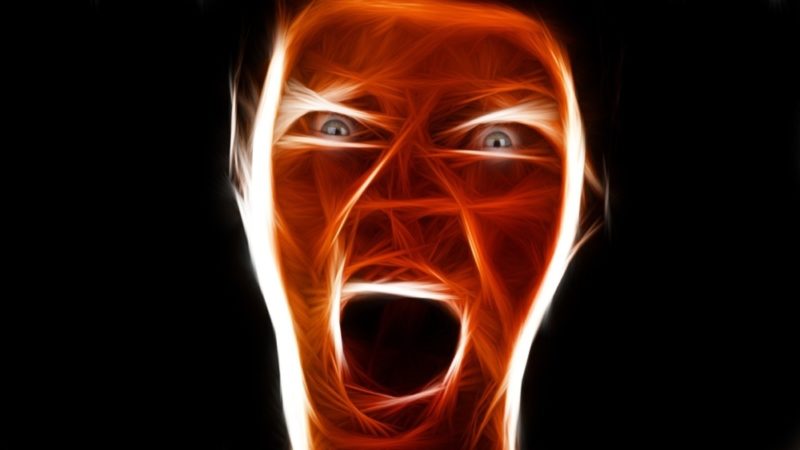Sociopathy (another name - dissocial or antisocial personality disorder) is a personality disorder characterized by the presence of antisocial behavior, increased and poorly controlled impulsivity. And often by demonstrative disregard for moral norms and social rules. Sociopaths often suffer from a distorted concept of the formation of attachments and have great difficulties with being in society. This is an officially registered disorder in the ICD-10 with a number of symptoms and behavioral features.
Material Content:
Description of the term “sociopath” in simple words
The main characteristic feature of all sociopaths is the lack of empathy, the inability to fully experience empathy, often this is associated with an extreme degree of selfishness. In combination with poorly controlled behavior, the presence of distorted moral norms and pronounced aggression, this gives a picture of a person poorly adapted to building interpersonal relationships.
In simple words, a sociopath can be described as a person who is practically devoid of such a quality as conscience. Long communication with such a person can become traumatic for the close circle, therefore, over time, the sociopath’s ties with his family and loved ones are destroyed, he fenced off from society.However, due to a certain need for attention to his own person, he has a tendency to commit shocking and destructive acts.
Definition by the international classification of diseases
In ICD-10 (the international classification of diseases of the last, tenth edition), there are a number of symptoms and signs, based on which you can make an appropriate diagnosis.
In order for a psychiatrist to be able to recognize a patient’s dissocial personality disorder, at least three symptoms from the following list are required:
- Lack of empathy for the feelings of other people, indifference to the emotional state of others.
- A persistent position in life, consisting in the conscious neglect of sociocultural norms adopted in the environment familiar to the patient.
- The tendency to regularly shift responsibility for their own unseemly acts on others, the habit of justifying their destructive actions.
- Poor adaptability to stressful situations, when even slight frustration leads to inadequate reactions, such as outbreaks of aggression and anger, the manifestation of violence.
- Extremely reduced or completely absent ability to feel guilty, lack of opportunity to learn from your own mistakes and ignoring punishments.
- The inability to build an adequate relationship in the presence of factors causing the individual dissatisfaction, the inability to healthy discussion and compromise, pronounced antisocial behavior.
For a correct diagnosis, the presence of symptoms should be recorded repeatedly, usually this happens over a long period of time. Isolated cases of these symptoms may indicate the development of neurosis or be signs of other personality disorders - only a psychiatrist can make an accurate diagnosis after a detailed diagnosis.
Types of Dissocial Disorder
Sociopathy can be classified according to several criteria.
Psychiatrists distinguish the following types of dissocial disorders, depending on the severity of symptoms:
- Active sociopaths usually tend to portray normality, for the species superficially observing social norms, only in situations where it may be beneficial. The rest of the time they can safely violate generally accepted rules of behavior in society, acting exclusively in their interests. It is in this category that repeat offenders and serial killers belong.
- Passive Sociopaths usually have a calmer character, and their actions do not shock anyone. Moreover, they are guided in life by outside ideals (for example, religious dogmas or political convictions brought to fanaticism). This type includes home tyrants, inadequate bosses and other people with whom there is a chance to encounter much more often than with representatives of the active type.
Some psychologists take highly functional sociopaths into a separate category, capable of subtle manipulation of others, able to adapt to moral standards and observe public decency. By nature, such people can openly despise the foundations of society, but their behavior expresses this to a lesser extent.
As a rule, these are individuals endowed with high intelligence; they often give preference to their favorite business, to which they relate with maximum dedication. Some experts classify such personalities not as sociopaths, but as schizoids, or they speak not of personality disorder, but of accentuation of character.
Causes and signs of sociopathy
In addition to general symptoms, there are a number of specific psychological signs that are characteristic specifically for patients with this personality disorder:
- Pathological deceit.This is a fairly common manifestation of the disorder, and a person who is prone to such a condition can lie with the aim of self-justification, and without any apparent reason.
- Lack of responsibility - often it manifests itself in the unwillingness to perform work that requires a serious approach, the refusal to create a family.
- The habit of intentionally causing trouble to others - it can consist in obtaining any personal benefit, as well as in ordinary household wrecking, which gives a sociopath pleasure.
This disorder is more often fixed in men than in women, the symptoms are usually similar, but there may be differences.
In men
Representatives of the stronger sex are more likely to abuse power; due to physiological characteristics, they prefer to act by force. Signs of sociopathy in men are usually more pronounced, carriers of the active form of the disorder are more common.
Among male sociopaths, maniacs and serial killers are much more common (while women this type of destructive behavior is practically not characteristic).
Another characteristic feature is that male sociopathy can develop at an early age, its alarming symptoms can be noticed even in childhood, while in women this disorder begins to develop actively later.
Among women
Women with signs of sociopathy most often give preference to psychological violence, sophisticated methods of mockery of others, they often lie and manipulate even the closest people.
Due to the fact that with dissocial disorder there is no possibility of proper prioritization of relatives and very weak empathy, women with this pathology are more likely to leave the family, abandon their children or stop paying attention to their upbringing.
Representatives of both sexes do not have a clear boundary for the manifestations of the disorder; these signs can be expressed quite variably, depending on the individual characteristics of the psyche and the nature of the individual. The causes of sociopathy can be different, even an experienced psychotherapist can not always determine what could become the “trigger” of a disorder in a particular patient.
What can trigger the development of the disease
To date, psychiatry does not give an exact answer, where do personality disorders, including sociopathy, originate from, but the following can be attributed to the main versions:
- Genetic predisposition, the manifestation of similar problems in immediate relatives (the risk of developing personality disorders in families where both parents show signs of psychopathy is especially high).
- Psychological injuries, especially those that occurred in early childhood. Most sociopaths have a history of violent episodes that have experienced serious stressful situations.
- The influence of environment and education.
Scientists have found that certain characteristic changes are recorded in the encephalogram of people with dissocial personality disorder. However, not enough research has been done in this area to draw any concrete conclusions.
Treatment methods
Given that a sociopath is a person who in most cases has a full understanding of what is happening to him, but considers this to be completely normal for himself, the treatment of such a disorder can be very difficult. The first step to cure is a personal recognition of the problem, but this, unfortunately, usually does not happen, since criticism of its condition is almost always reduced.
To date, there is no remedy that could, with a 100% guarantee, completely cure a patient suffering from this personality disorder. There is only the possibility of stopping the symptoms and translating the condition into a stable remission. However, no psychiatrist can guarantee that in a certain situation the condition will not resume.
Psychotherapeutic techniques have proven themselves best, which allow the sociopath to control their impulsive impulses, teach them how to interact with others, and adjust their behavior based on moral principles.
Concomitant drug therapy can help reduce the severity of symptoms such as an increased level of aggressiveness or impulsivity, and even out the emotional background.
A sociopath may be brought to a psychotherapist by a subconscious feeling of lack of something in his own worldview or a traumatic situation that provokes stress that cannot be managed on his own. In this case, the main task of the doctor is to correctly diagnose, not to scare away the patient and try to cause a desire to change something.
Famous people with the disorder
People with a mild form of sociopathy often become heroes of popular films and TV shows. Sherlock Holmes from a modern remake of the famous work of Conan Doyle classifies himself as a “highly active sociopath”.
Looks like him and another famous genius from the screens - Dr. House. Both of these characters defiantly do not take into account social norms, ignore the emotions of others, while brilliantly showing themselves in business. Of course, such an image is highly romanticized - in reality, communication with such a person would present certain difficulties.
Famous criminals such as Chikatilo and Jeffrey Damer suffered from sociopathy. For the sake of satisfying their perverted aggressive needs, they did not shun terrible murders and tortures, being convinced of their own impunity.
Some researchers attribute to the sociopaths such famous historical figures as Hitler and Caligula. It is difficult to say how reliable this diagnosis is in relation to such individuals, but certain signs of the disorder were inherent in them.
Summing up, we can confidently say that dissocial personality disorder is a serious problem for both the person himself and his environment. Therefore, it is extremely important to try, one way or another, to cope with the manifestations of this condition.


















